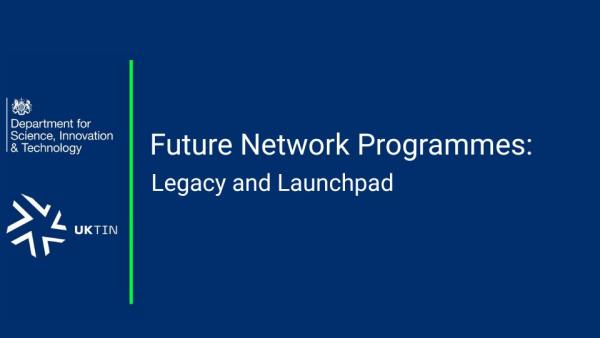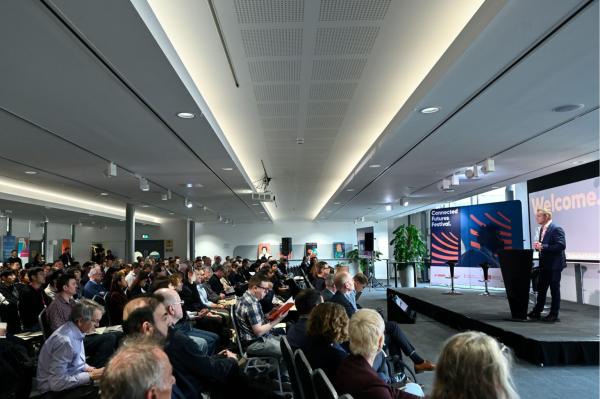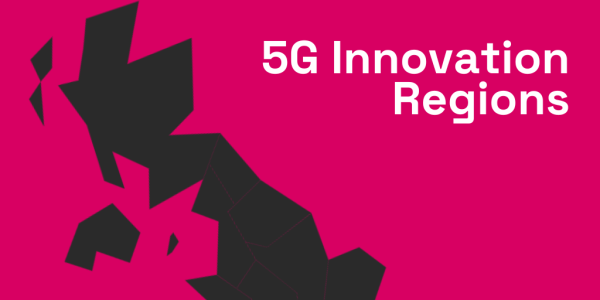Future communication systems including 6G, faster internet access and cloud computing have received £6m investment from the Engineering and Physical Sciences Research Council (EPSRC) – part of UK Research and Innovation.

Bristol’s Smart Internet Lab are partners in two trailblazing Platforms, which have been assembled to develop innovations in communications systems, whilst connecting the wider academic, business and international communities.
The first project Network of Networks, involves TITAN, a consortium of 17 universities, led by the University of Strathclyde, which lead research in crucial segments of future communication networks. This is supported by four associate partners, the Bristol Digital Futures Institute (BDFI), the Digital Catapult, the Compound Semiconductor Centre (CSC) and the Fraunhofer Centre for Applied Photonics (CAP).
This consortium aims to establish an open and productive platform for research collaboration and engagement across a large number of academic and industrial partners supported by a management structure which enables a flexible expansion if necessary. Together, the partners will conduct unique and highly transformative research on the interfaces of classic communication network elements to achieve the seamless, open and fully integrated network of networks.
The second project, Wireless and Wired Systems and Spectrum, is a hub led by the University of Oxford, which brings together eight teams in total including the Universities of Bristol, Belfast, Cambridge, Southampton, Strathclyde, Imperial College and UCL. This brings together leading expertise in a wide range of wired and wireless technologies, in order to address the challenge of providing high-speed, low-latency access to internet services for future fixed and mobile users.
Its objectives are to advance technical capabilities, build a strong engagement between academia, industry and policy makers, and train researchers. Communications systems research is a critical area that underpins the whole future digital society and forms part of a national ambition around world-class communications systems and technology.
Professor Dimitra Simeonidou, Director of the Smart Internet Lab and Co-Director of the Bristol Digital Futures Institute at the University of Bristol, said: “We are looking forward to working with a rich research ecosystem of partners in the Future Communications Platforms.
“These Platforms bring together telecommunications researchers and academic institutions with world-leading capabilities and facilities. Together, we will enact ambitious research on problems that we cannot yet solve, and we will develop technologies and solutions to drive major breakthroughs in future telecommunications networks.”
Jane Nicholson, EPSRC’s Director for Research Base, said: “Digital communications infrastructure underpins the UK’s economy of today and tomorrow and these projects will help support the jobs and industry of the future. Everybody relies on secure and swift networking and EPSRC is committed to backing the research which will advance these technologies.”
These initial exploratory platforms will enable applicants to work flexibly in order to network with, and leverage support from, the existing communications landscape. They will also provide support for research with focus on lower technology readiness level (TRL) discovery science which should gear towards translation to high TRL challenges.









